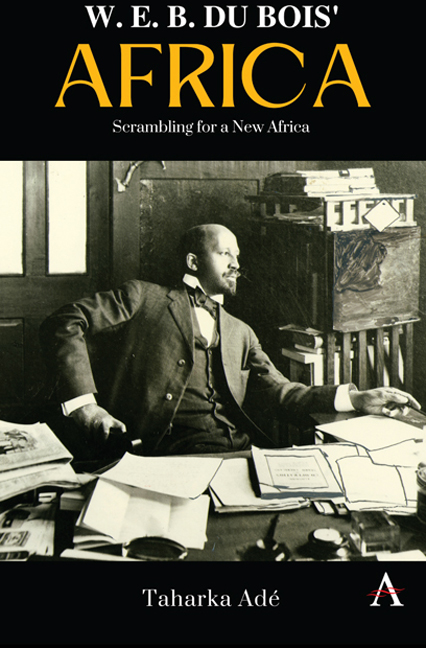3 - Du Bois and the Formation of Contemporary African History
Published online by Cambridge University Press: 28 February 2024
Summary
Du Bois and the Conundrum of White Scholarship
In the preceding chapters on Africa's classical antecedents, Kemet and Kush, Du Bois was highly critical of the way the Western academy has presented the racial question in regard to the people of the Nile Valley. However, in the chapters in which Du Bois surveys what we may call the generators of contemporary African civilization, his critique is much less about the question of their race but instead the ways in which the West has attempted to reduce the agency of African groups based on their race. But before delving back into Du Bois’ historical survey, I find it proper here to address the issues facing Du Bois on his path toward both writing this history and the shaping of his perspective along the way.
Du Bois borrows significantly from certain European scholars to write his histories on African people. But perhaps this would not be his choice if he had a better choice to make. For example, he leaves a footnote in his chapter on Kush explaining, “For the history of Ethiopia I have leaned heavily on [miscellaneous] material furnished me by Professor Leo Hansberry of Howard University.” In the foreword he expressed “regret that [Hansberry] has not published more of his work.” He also regrets that he could not use the works of Frank Snowden and that “classical journals in America have hitherto declined to publish his paper because it favored the Negro too much […] I tried to get Dr. Snowden to let me see his manuscript, but he refused.”
Both Hansberry and Snowden were African American historians whose scholarship Du Bois apparently trusted and perhaps wished for their work to make up the bulk of chapters IV, V, and VI in The World and Africa, covering the peopling of Africa, and the histories of Kemet and Kush, respectively. Interestingly, Du Bois does not at all mention Carter G. Woodson, whose works at the time could have contributed greatly to a number of chapters in the text. Perhaps this was due to their personal differences which occurred a decade before the book was published. This incident shall soon be covered but first we digress to Du Bois’ conundrum with white scholars.
- Type
- Chapter
- Information
- W. E. B. Du Bois' AfricaScrambling for a New Africa, pp. 75 - 106Publisher: Anthem PressPrint publication year: 2023



